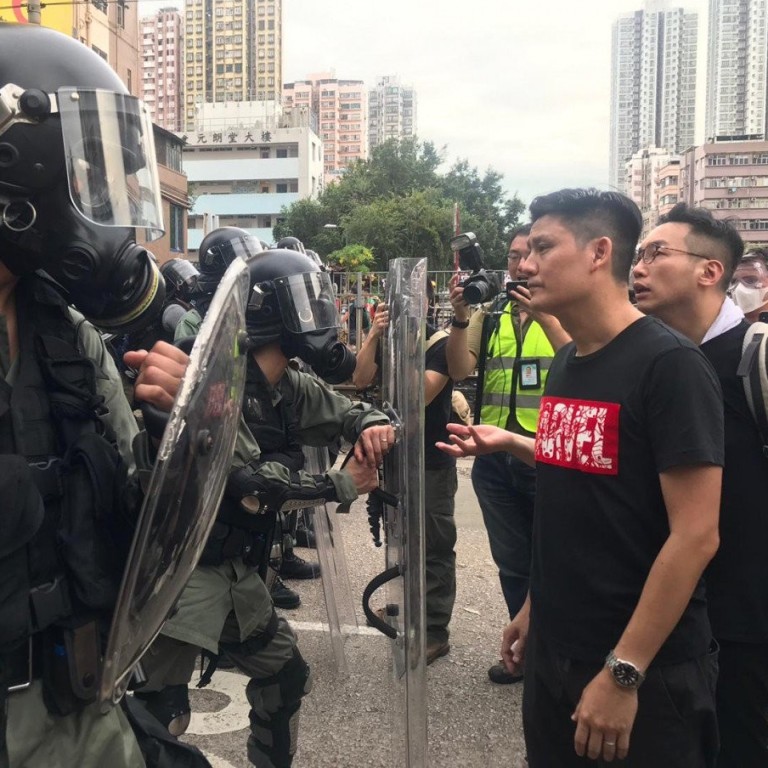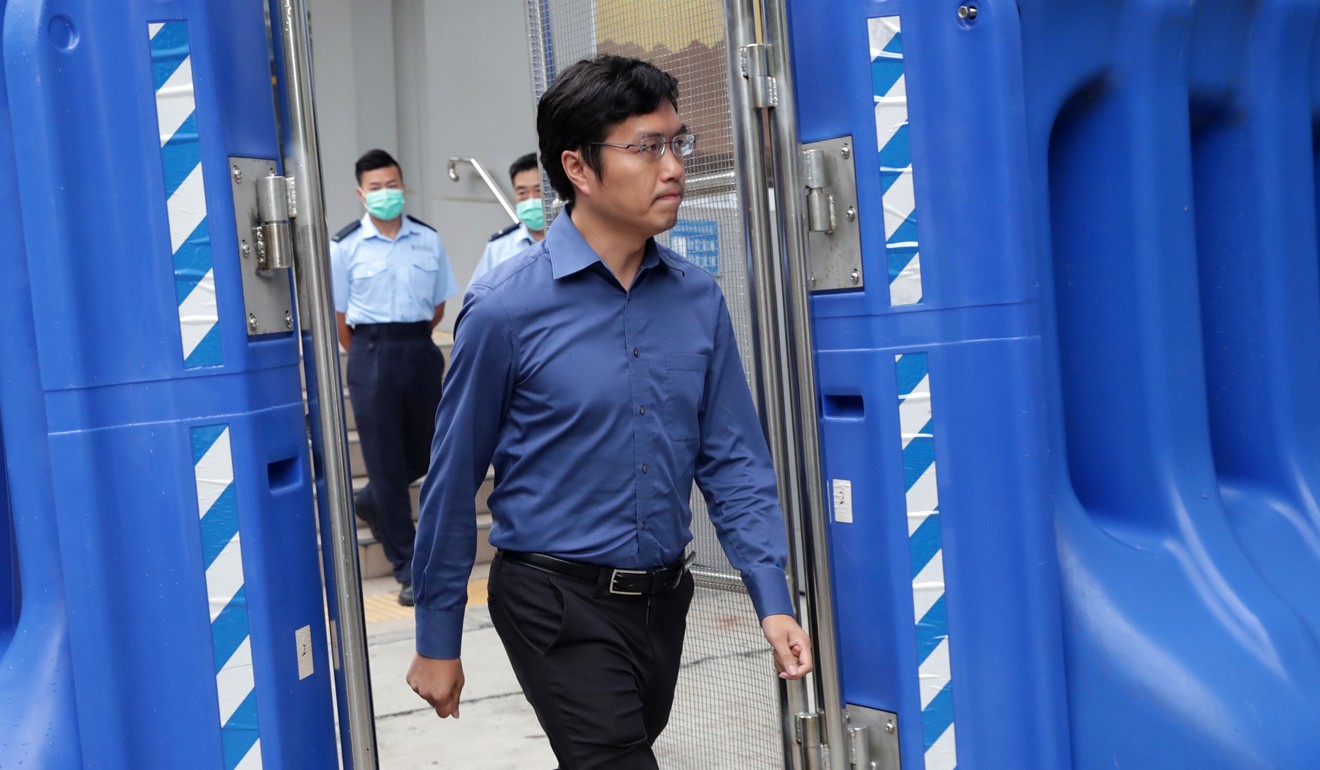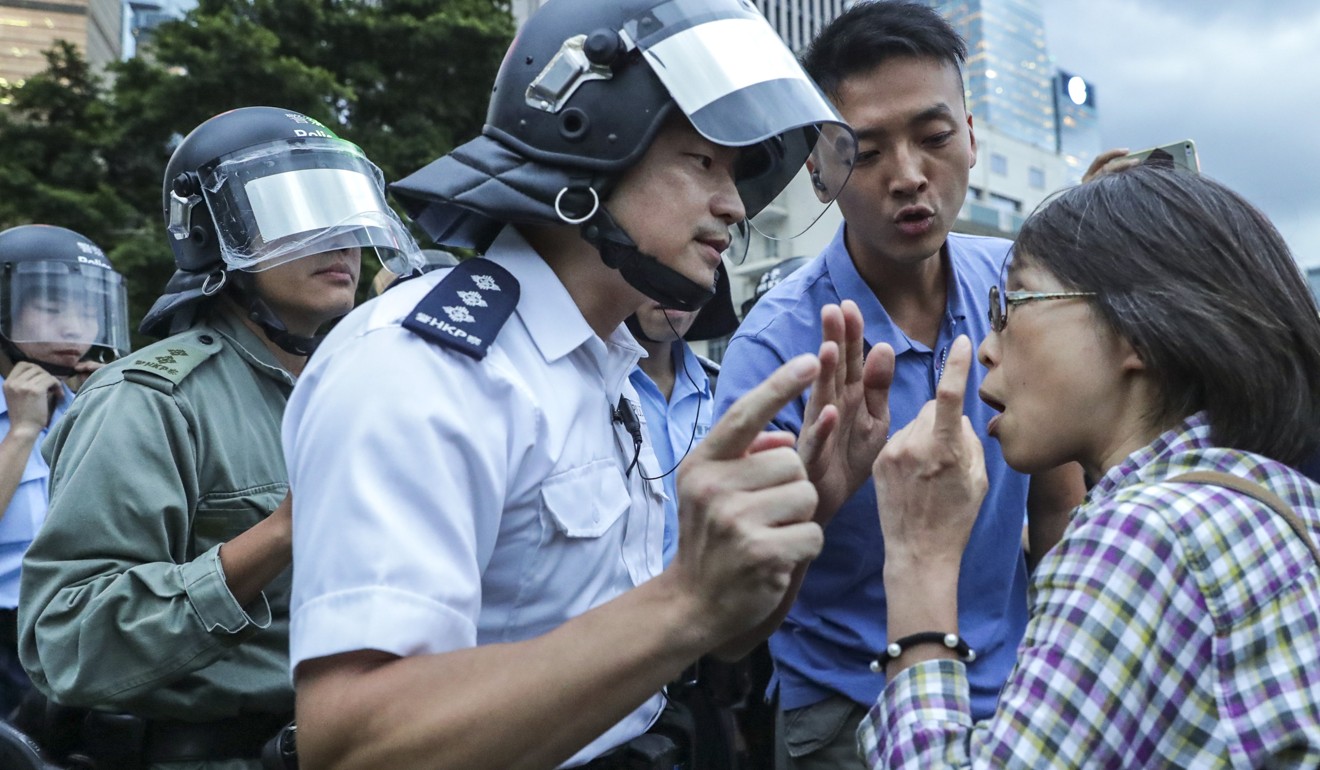
Mediators at Hong Kong anti-government protests face arrest if they obstruct police, force memo confirms
- Legislators and social workers are often at anti-government demonstrations, where they say they try to cool heads on both sides
- New guidelines make clear the circumstances in which they can be detained
Legislators and social workers who try to mediate at anti-government protests face arrest if they do not make way for advancing police cordons, guidelines handed down by the force’s top brass have made clear, as unrest in Hong Kong shows no sign of dying down.
The advice would also apply when dealing with reporters, according to a memo issued by assistant commissioner Albert Yuen Yuk-kin on August 20.
But social workers and lawmakers earlier arrested for obstructing officers vowed to stand their ground at protests, while the head of a major local journalists’ association said the force should remind frontline officers to be calm.
On Friday, five social work groups wrote to Commissioner of Police Stephen Lo Wai-chung urging the force to recognise their supporting role on the front lines. At least 14 social workers have been arrested at protests, some charged with rioting, they said.
Hong Kong prosecutor taken off police cases over protest comments
According to Yuen’s memo, seen by the Post, the force noted that when officers push cordons forward they are often deliberately obstructed by members of the crowd, including lawmakers, reporters and social workers.
“They proactively charge the cordon line or stand or sit in front of the cordon line; or keep asking to have a dialogue with the police commander at the scene. Even though police have issued multiple warnings, they still refuse to leave,” it read.
It said officers should first state they are performing duties, explain their powers and the relevant regulations, and ask the people to leave.
If the person refuses to leave, officers should warn them they “have breached the laws and may be arrested for obstructing police officers”. Then, police should give “reasonable time” for the people to leave.
If the obstruction continues, officers should issue another warning like the first one, the memo continued.
“If the second warning is still being neglected, officers could consider taking action. That means removing those obstructions or arresting the people who caused obstructions, then continue to execute duties,” it read.
When deciding whether to make an arrest or not, commanders should consider factors including the extent of obstructions, the level of violence and the impact on police executing their duties, it added.
A police source said it was the latest routine reminder on guidelines from the top level to frontline staff, but added that it was the first time an internal memo mentioned how to deal with lawmakers, reporters and social workers obstructing officers’ work at the recent protests.
They failed to address that sometimes clashes did not happen during many protests, due to the presence of lawmakers and social workers
Since protests flared up in June against a now-withdrawn extradition bill, lawmakers and social workers have often been on the ground, sometimes with megaphones, urging police to calm down and pleading for more space for protesters to leave.
Civic Party legislator Jeremy Tam Man-ho has been among them. He was arrested for obstructing police officers on July 8. Tam said the guidelines would not deter other members of civil society doing what they thought was right.
“Lawmakers are there to monitor government operations,” he said. “Unless you’re now telling me the police are not part of the government.”

Tam said he would not stop police from advancing or making arrests, adding that lawmakers at the scene were usually just there to urge restraint and monitor whether officers abused their power.
Pro-democracy legislator Au Nok-hin, who was also arrested, said the guidelines showed police viewed them as enemies.
“They failed to address that sometimes clashes did not happen during many protests, due to the presence of lawmakers and social workers,” he said.
Jordi Tsang Sing-cheung, a social worker who was often at the protests, said the guidelines were unreasonable. He said he and colleagues served as a buffer between both sides, minimising injuries.

Tsang said social workers had initially gone without protective gear to let police understand their role, but he had started wearing gear after late July, as tear gas became a regular occurrence.
Earlier this week, the Hong Kong Journalists Association issued two statements to strongly condemn police, one on obstruction of reporting, another on assaulting and injuring reporters.
Chris Yeung Kin-hing, the association’s chairman, said some frontline reporters thought police officers had lost control of their emotions.
“Under this situation, if they are still reminded of what they can do, including making arrests ... it seems to be giving a green light to them to go further,” he said.
“Police should remind frontline officers to be more calm and act with self-restraint.”
In a reply to the Post, police said they judged every case on its own merits and took actions in accordance with the law.
“In deciding whether to take any arrest action in an individual case, police will consider whether the person concerned is suspected to have contravened the law, having regard to the circumstances of the case and the evidence available,” a spokesman said.
“Police are impartial in carrying out their duties,” he said, adding that if necessary they would seek legal advice.

